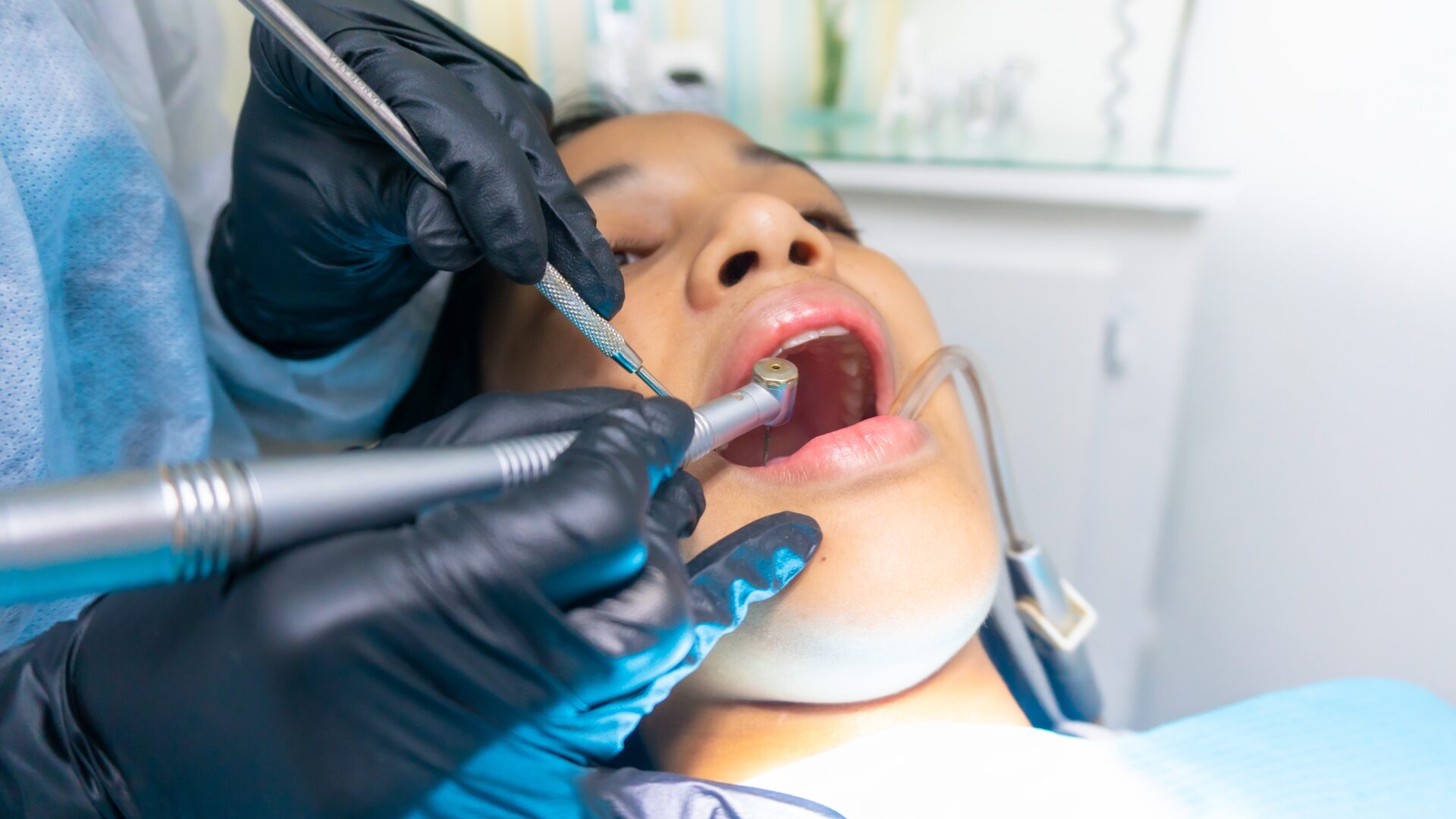- Tooth sensitivity is caused by enamel erosion, exposing dentin and nerves, leading to discomfort and pain.
- Numerous factors contribute to sensitivity, including acidic foods, teeth grinding, aggressive brushing, and periodontal disease.
- Solutions range from desensitizing toothpaste, fluoride treatments, and gum grafts, along with maintaining good oral hygiene.
- Preventive measures include reducing acidic foods, protecting teeth from grinding, maintaining a balanced diet, and staying well-hydrated.
Do you ever wince in pain when you eat something hot or cold? Tooth sensitivity can be a real pain to deal with. Thankfully, understanding the causes and solutions can make all the difference in how you address your sensitivity concerns. This blog will cover essential things you need to know about tooth sensitivity, including some surprising causes you may not have considered.
What is Tooth Sensitivity?
Tooth sensitivity occurs when your teeth enamel is worn-out, exposing the dentin and nerves underneath. This can cause pain, discomfort, and sensitivity to hot or cold temperatures, sweets, and other foods. The pain can range from mild discomfort to sharp and intense pain.
Surprising Causes of Tooth Sensitivity
While enamel erosion is a common cause of tooth sensitivity, there are other factors that can contribute to sensitivity as well. Acidic foods and drinks, teeth grinding, brushing too hard, and even periodontal disease can contribute to tooth sensitivity. Yes, it’s important to brush and floss regularly to maintain oral hygiene, but too much brushing can be harmful, too. Consult your dentist or periodontist to understand the right way to brush your teeth.
When to See a Professional?

Many times, tooth sensitivity is nothing to worry about. However, if the sensitivity persists for days or weeks and is accompanied by pain or discomfort, your best bet is to visit your dentist. A periodontist, in particular, can assess the condition of your teeth and gums and provide a proper diagnosis on how to address your tooth sensitivity. A good periodontist will also discuss the causes of your sensitivity and provide personalized solutions for you to follow. They can also perform various procedures that can help you, which leads to the next part of this blog.
Solutions to Tooth Sensitivity
There are numerous solutions to tooth sensitivity, depending on the severity and underlying cause of your condition. Your dentist or periodontist may recommend or perform the following three things:
Use a desensitizing toothpaste.
A desensitizing toothpaste can help reduce tooth sensitivity by preventing pain signals from interacting with the nerves. Look for a toothpaste that contains potassium nitrate, which has been proven to be effective in controlling sensitivity.
Get a fluoride treatment.
Fluoride treatments can help strengthen enamel and make your teeth more resistant to acid attacks from food and drinks. In-office fluoride treatments are quick, painless, and can provide immediate relief for tooth sensitivity.
Consider a gum graft.
In cases of severe gum recession, where the roots of your teeth are exposed, a gum graft may be recommended. This procedure involves taking tissue from another part of your mouth and placing it over the exposed root to protect it and reduce sensitivity.
These solutions, along with proper oral hygiene and regular visits to your dentist or periodontist, can help alleviate tooth sensitivity and improve your overall dental health.
Prevention is Key
Prevention is the best way to manage tooth sensitivity. There are many things you can do to prevent enamel erosion and other causes of sensitivity. Here are four easy tips to help you prevent tooth sensitivity:
Reduce Acidic Foods and Drinks
To prevent enamel erosion, limit your consumption of acidic foods and beverages, such as citrus fruits, soda, and vinegar. Acidic substances can wear down the protective enamel on your teeth, making them more sensitive.
Protect Your Teeth from Grinding
If you grind your teeth at night, consider wearing a custom-made mouthguard provided by your dentist. This can help prevent further damage to your tooth enamel and reduce sensitivity caused by teeth grinding.
Maintain Proper Diet

A balanced diet rich in calcium and other essential nutrients can promote strong teeth and help prevent sensitivity. Foods like dairy products, leafy greens, and lean proteins support enamel health and overall oral well-being.
Stay Hydrated
Drinking an adequate amount of water throughout the day helps maintain a healthy saliva flow, which naturally protects your teeth. Saliva acts as a buffer against acid and assists in remineralizing enamel. Staying well-hydrated can contribute to reducing tooth sensitivity.
Prevention and proper dental care are the keys to managing and preventing tooth sensitivity. With the right knowledge and solutions, you can enjoy your favorite foods without wincing in pain.
Tooth sensitivity can indeed be a painful inconvenience, but it’s comforting to know that it can be managed and even prevented with the right practices and strategies. From using desensitizing toothpaste and seeking professional treatments to maintaining a balanced diet and staying hydrated, every measure counts in ensuring oral health.









